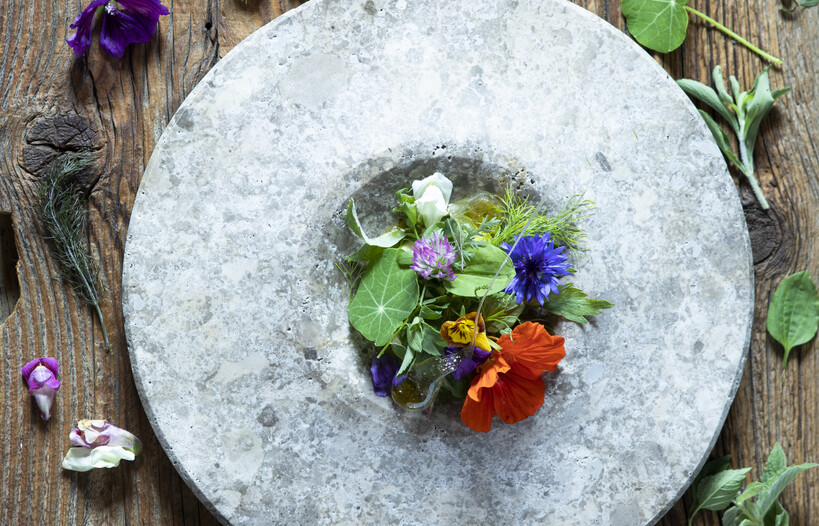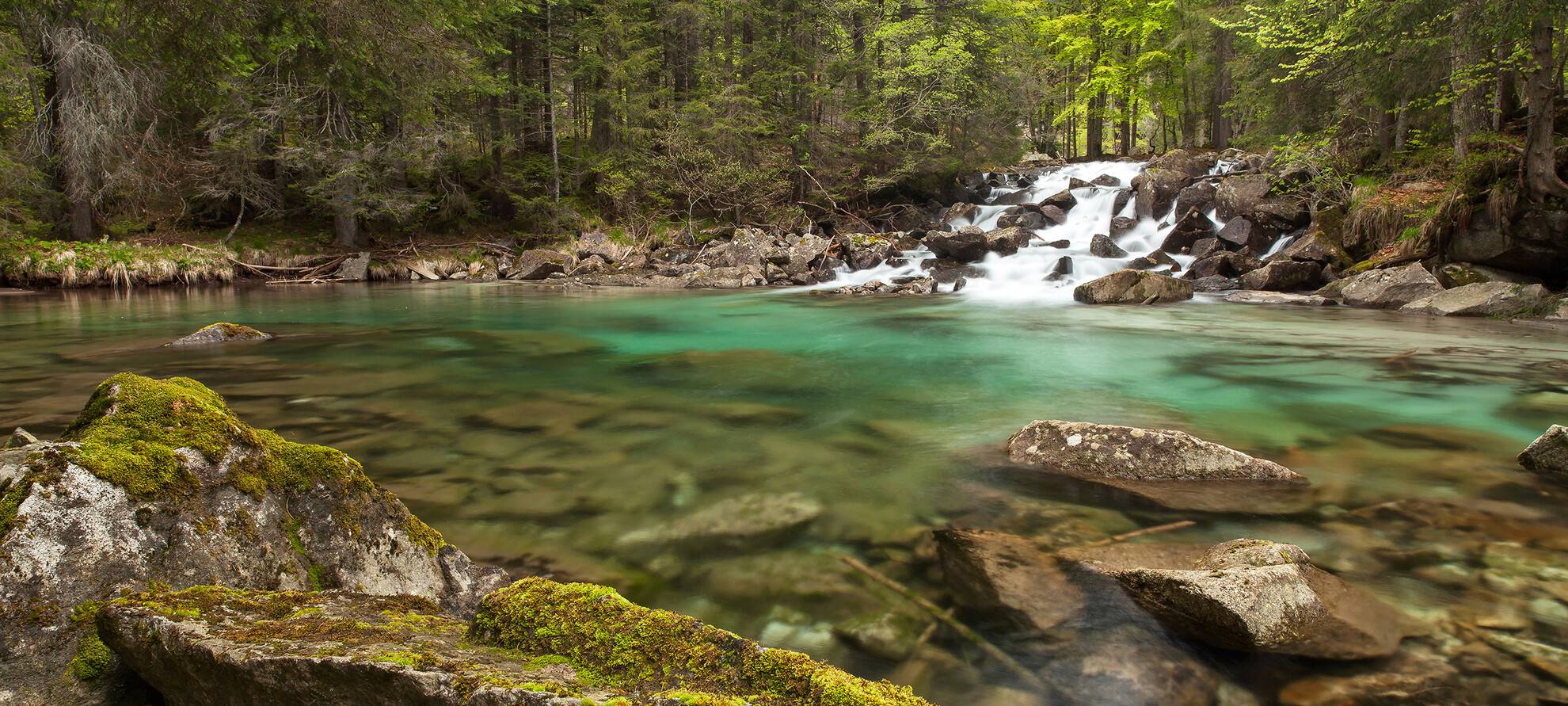Eleonora “Noris” Cunaccia
Returning Beauty to Beauty
“We are all realising that the food we eat no longer nourishes us, it fills your belly, as they say, but it is a food that no longer has any added value. Perhaps nature does, because it is born of the smartness of a seed”.
Since her childhood, Eleonora Cunaccia has been collecting wild edible herbs, berries, roots and resins, in short, nourishing spontaneous mountain bounties. Over the years, her “game” has become a passion and a mission, her personal key to access the immense encyclopaedia of nature, the grammar by which she interprets and transports the life of the woods, of the mountains, of the planet into the third millennium.
It is not easy to meet her, because her life is in the woods, where she takes refuge, studies, researches and creates foundations for the future and the conservation of life and species. Flavours and tastes of nature are her mission. She shares her knowledge with gastronomes, gastrosophers, sociologists, naturalists, farmers, mountaineers, breeders, cooks, artists, entrepreneurs and researchers from all over the world. Her den is on the slopes of the mountains of the Adamello Brenta Park, though her research is global and attentive to centres and institutions of excellence from all over the world.
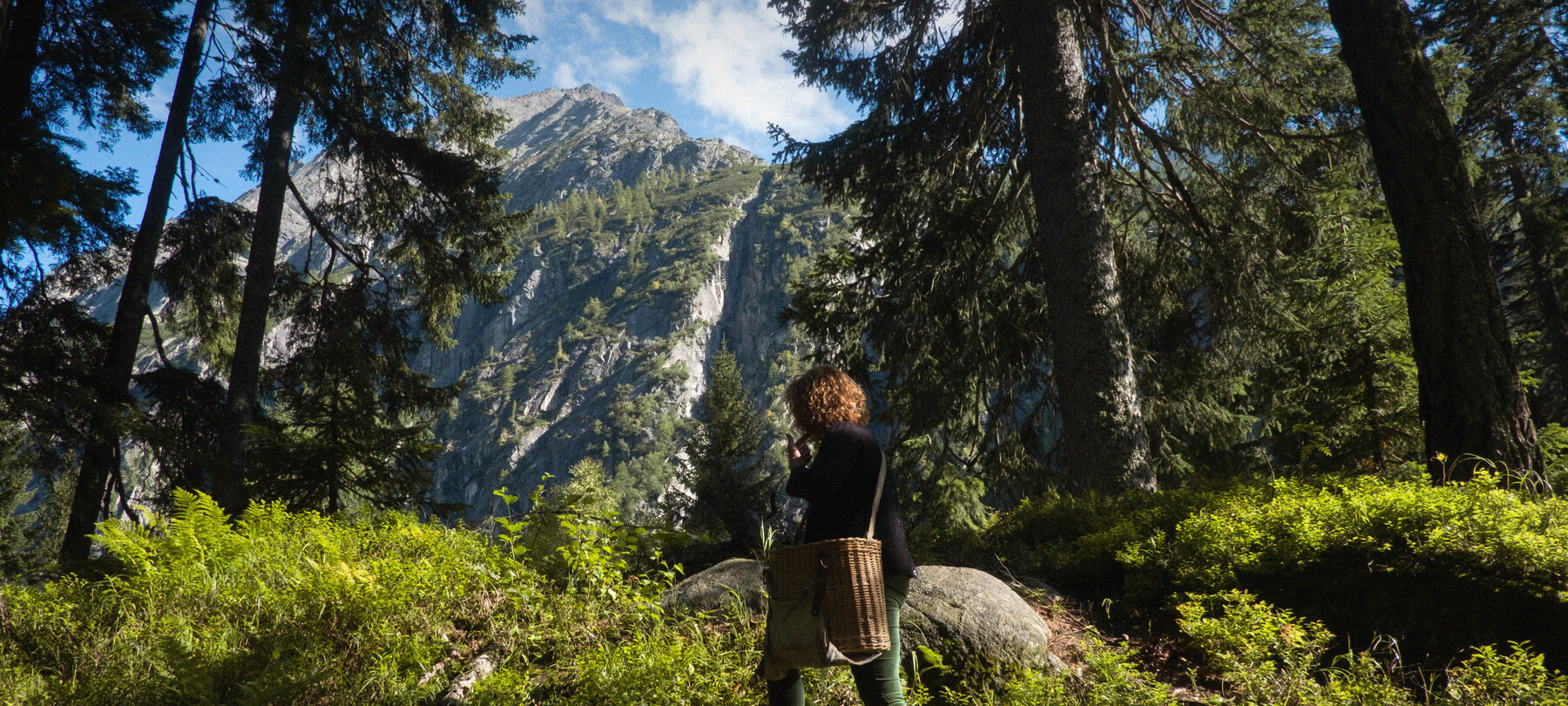
Foraging
“Foraging is not about eating herbs, it is about knowing places, people and land”, tells us Noris, the woman who, using the words of Norbert Niederkofler in Cook the Mountain, the manifesto of the international movement that fights for safeguarding the planet through the recovery of the tradition of Alpine food, has her “legs in the past, though her head lives in the future”.
Harvesting and eating wild herbs from the woods is an ancient practice that has become lost in the mists of time. What centuries ago was almost a necessity, today is the conquest of a world of flavours and delicacies with seemingly exotic aromas. And yet, it is a very different activity from a simple experience of taste or of the wild; it is an activity that requires study, knowledge, intelligence and kindness, all to be leveraged in the respect of nature.
Noris continues: “Understanding the mountains is also understanding what each portion of the territory can offer, as well as its needs and limits. Books are not enough, hands-on courses are needed. You have to hold the plants in your hands, look at them without haste, one at a time. The herbs are to be harvested only when the season allows it. The wood is not a pantry, we cannot think of taking only what we like, otherwise it would be like stealing. We need environmental education”. And she adds: “The human being is a guest on this planet. We have done so much worse in the past and today we have to relate intimately with nature so as to be able to take only what nature is able to give us”.
“You must walk through woods with due respect, with the innocent eyes of children, animals and lovers. You must be very strict, I’m very strict with myself. Nothing is improvised. Herbs can be very dangerous”.
Noris reminds us that it is necessary to work with the certainty yielded by knowledge because there are thousands of herbs in Italy alone. After a lifetime of experience and research, she is committed to dispensing her knowledge to botanists and ethnobotanists on a daily basis. “To the beginner I always say: approach slowly, one herb at a time. We must learn to harvest. Maybe you start with a simple plant like dandelion, but you must be sure that you don’t make mistakes with that plant either. And what do you do with dandelion? You have to learn how to identify it, pluck it, clean it and then set your menu in motion. There is no basic recipe for everything. Every time I hold a herb in my hand, it takes me months to understand it”. Because each part of the plant, in the different moments of its seasonal life, develops different flavours, in the seed, in the stem, in the foliage and in the flower. For Noris, you have to tame a plant in order to start thinking like it.
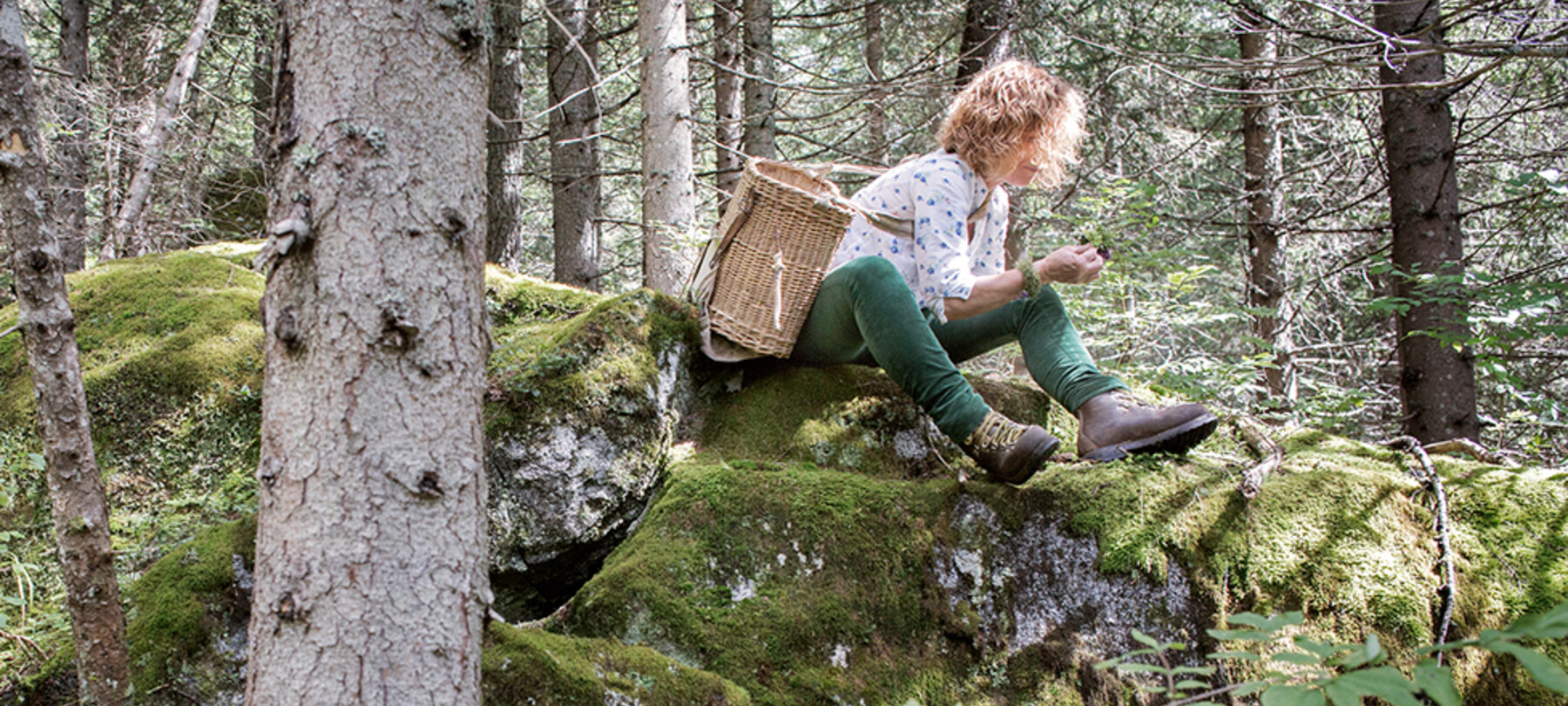
The intelligence of the seed
“If I got lost in the woods, I could survive for quite some time. I know where plants are born, when to harvest them and how to use them”.
Understanding a herb for Noris means breaking it down, understanding all its flavours. Her research develops along the entire life cycle of the plant, from root to flower. And then there is the experimentation to understand how to make the most of each of its parts, either by fermentation or drying. Only when she has understood all these elements can she say that she knows a plant. This is the moment when in her laboratory, Primitivizia, products that are sought after by chefs from all over the world are born.
The time of this knowledge is respect for what each plant manages to give back. “Each plant is different from the other, I have never found one that has the same shape. Each plant is like single individuals. It belongs to a single race, but each has its own soul and individuality. I feel I have to understand a plant. For example, with dandelion I create at least ten different foods. Starting from roots and seed, the plant is a part for the whole. It must be read like a book. Nature itself must be read, felt”.
After flowering, in autumn, there are citrus-tasting seeds of the flower...the flavour of the coming season..
Support, consistency, kindness
In Noris’s laboratory, we can find traces of all her travelling companions who have made her the person she is today. Friends who, although no longer with us, wanted to leave pieces of their world and their lives to her. Because the mountain is solitude, effort, but it is also and above all encounters, exchanges and support. And it is emotion. The emotion of consistency with respect to one’s goals and beliefs, and of kindness. Kindness towards nature that teaches kindness towards all living beings, including men and women, something that is not at all obvious. It is kindness that then is given back.
And then there are the boots… even those of Giuseppe Šebesta, the famous Trentino-native documentarian and ethnographer. Noris keeps them all. “Boots are an indispensable tool for me. They walked a lot, they made many trips, they have an era, a year. When they have served their purpose, you have to leave them behind but they stay here to keep me company. I have two hundred pairs, I have a passion for them, some are really collectibles”. Others are so worn, open, cut that it is hard to believe one could have used them so much.
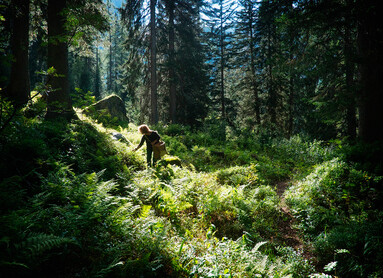
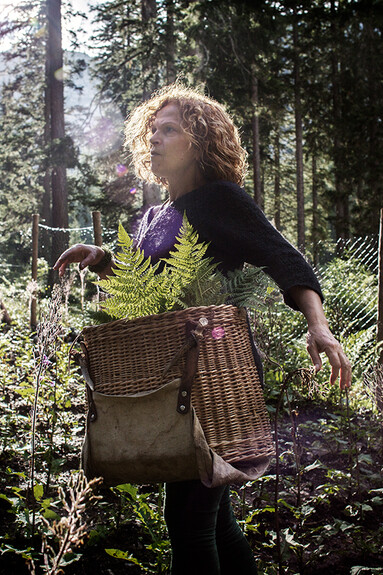

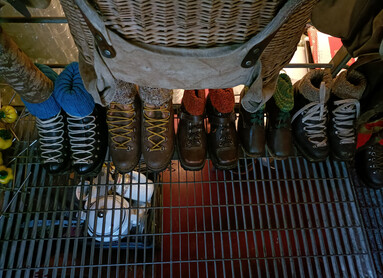
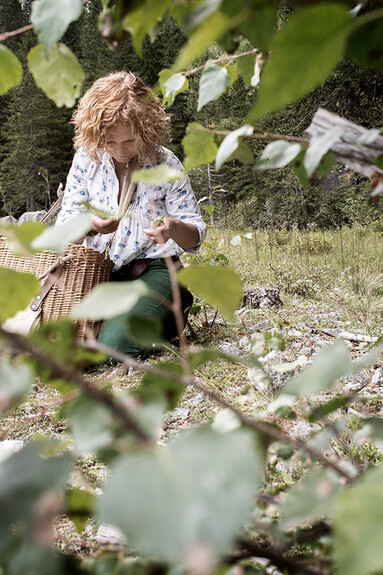
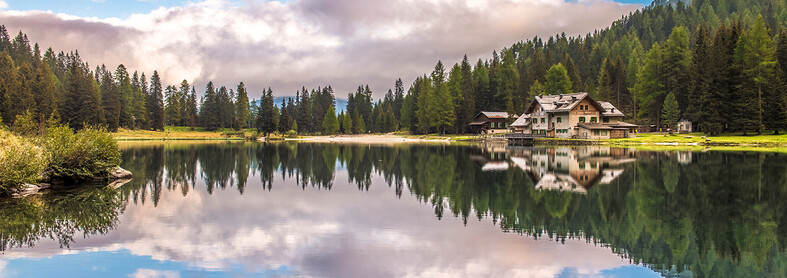
Gratitude
“The vision of the woods is an overall vision. There I catch many nuances, also because the mountain, like the world, is not all to be used and eaten; it is my privilege to live in a place with so much beauty but it is not just mine, it belongs to all those who love it. It is really time to find a balance, and we all have to do it. It is time to achieve a balance with nature, not within nature, but with nature. For me, balance is the small choices you make every day for the benefit of nature”.
And nature, every time, is grateful and gives back. It gives back by means of the spring water that Noris encounters along her way, the herbs she stumbles upon for dinner, and the bliss it conveys to her. “The Dolomites. Do you see them? They are a collective heritage that belongs to everyone, in a global world. What you see around here is ours, meaning of the community, a small piece is also mine, but it is indivisible, it can never be sold or bought. Is it worth taking care of it?”. The answer is yes.
Five years ago ASUC, the Separate Administration of Collective Heritage for Civic Use, the body that administers the collective properties of Fisto, a small hamlet of Spiazzo, with just over 200 inhabitants, entrusted Noris with the management of Lake Nambino Hut, located 1800 a.s.l., to transform it into an international research centre on wild herbs. It is a place of extraordinary beauty, to which Noris feels the responsibility to continue adding beauty. Beauty that can be seen and beauty that is not so obvious, beauty of earth beneath the surface, a world so fascinating upon which part of her research focuses because it has remained intact, pristine and primitive, the ideal place to relearn how to look at the world beyond the crust.
Because “there is no positive or negative in nature. Everything is needed and everything makes sense. It is the same for us. Whether it is in the sea, in the wind. The important thing is to be surrounded by nature”.
Thank you, Noris.
